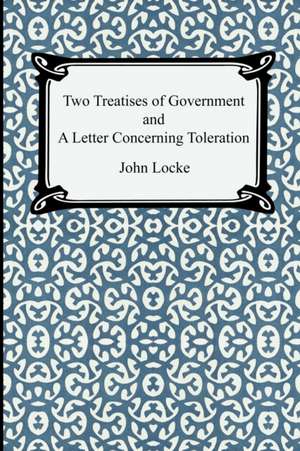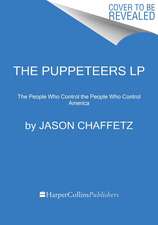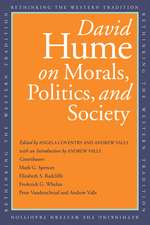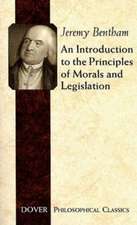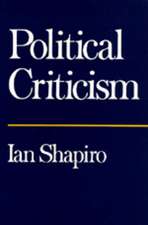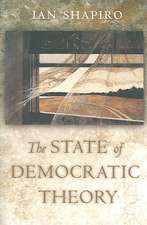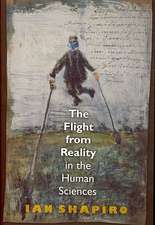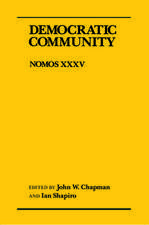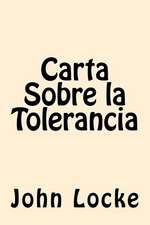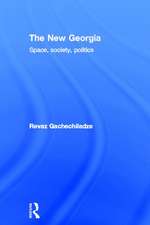Two Treatises of Government and a Letter Concerning Toleration: The Soul of Japan
Autor John Lockeen Limba Engleză Paperback – 31 dec 2004
| Toate formatele și edițiile | Preț | Express |
|---|---|---|
| Paperback (5) | 63.40 lei 3-5 săpt. | |
| CREATESPACE – | 63.40 lei 3-5 săpt. | |
| CREATESPACE – | 91.49 lei 3-5 săpt. | |
| CREATESPACE – 30 apr 2010 | 99.55 lei 3-5 săpt. | |
| Yale University Press – 10 noi 2003 | 155.20 lei 3-5 săpt. | +16.57 lei 4-10 zile |
| Digireads.com – 31 dec 2004 | 70.52 lei 6-8 săpt. |
Preț: 70.52 lei
Nou
Puncte Express: 106
Preț estimativ în valută:
13.49€ • 14.12$ • 11.23£
13.49€ • 14.12$ • 11.23£
Carte tipărită la comandă
Livrare economică 01-15 aprilie
Preluare comenzi: 021 569.72.76
Specificații
ISBN-13: 9781420924930
ISBN-10: 1420924931
Pagini: 180
Dimensiuni: 152 x 229 x 10 mm
Greutate: 0.27 kg
Editura: Digireads.com
Locul publicării:United States
ISBN-10: 1420924931
Pagini: 180
Dimensiuni: 152 x 229 x 10 mm
Greutate: 0.27 kg
Editura: Digireads.com
Locul publicării:United States
Notă biografică
John Locke FRS (/l¿k/; 29 August 1632 - 28 October 1704) was an English philosopher and physician, widely regarded as one of the most influential of Enlightenment thinkers and commonly known as the "Father of Liberalism" Considered one of the first of the British empiricists, following the tradition of Sir Francis Bacon, he is equally important to social contract theory. His work greatly affected the development of epistemology and political philosophy. His writings influenced Voltaire and Jean-Jacques Rousseau, many Scottish Enlightenment thinkers, as well as the American revolutionaries. His contributions to classical republicanism and liberal theory are reflected in the United States Declaration of Independence.[14]
Locke's theory of mind is often cited as the origin of modern conceptions of identity and the self, figuring prominently in the work of later philosophers such as David Hume, Rousseau, and Immanuel Kant. Locke was the first to define the self through a continuity of consciousness. He postulated that, at birth, the mind was a blank slate or tabula rasa. Contrary to Cartesian philosophy based on pre-existing concepts, he maintained that we are born without innate ideas, and that knowledge is instead determined only by experience derived from sense perception.[15] This is now known as empiricism. An example of Locke's belief in empiricism can be seen in his quote, "whatever I write, as soon as I discover it not to be true, my hand shall be the forwardest to throw it into the fire." This shows the ideology of science in his observations in that something must be capable of being tested repeatedly and that nothing is exempt from being disproven. Challenging the work of others, Locke is said to have established the method of introspection, or observing the emotions and behaviours of one's self
Locke's father, also called John, was an attorney who served as clerk to the Justices of the Peace in Chew Magna[17] and as a captain of cavalry for the Parliamentarian forces during the early part of the English Civil War. His mother was Agnes Keene. Both parents were Puritans. Locke was born on 29 August 1632, in a small thatched cottage by the church in Wrington, Somerset, about 12 miles from Bristol. He was baptised the same day. Soon after Locke's birth, the family moved to the market town of Pensford, about seven miles south of Bristol, where Locke grew up in a rural Tudor house in Belluton.
In 1647, Locke was sent to the prestigious Westminster School in London under the sponsorship of Alexander Popham, a member of Parliament and his father's former commander. After completing studies there, he was admitted to Christ Church, Oxford, in the autumn of 1652 at the age of twenty. The dean of the college at the time was John Owen, vice-chancellor of the university. Although a capable student, Locke was irritated by the undergraduate curriculum of the time. He found the works of modern philosophers, such as René Descartes, more interesting than the classical material taught at the university. Through his friend Richard Lower, whom he knew from the Westminster School, Locke was introduced to medicine and the experimental philosophy being pursued at other universities and in the Royal Society, of which he eventually became a member.
Recenzii
"The new standard edition of Locke for students of political theory. Dunn, Grant, and Shapiro combine authoritative historical scholarship and contemporary political theory to give us Locke for our time."—Elisabeth H. Ellis, Assistant Professor of Political Science, Texas A&M University
"In criticisms of ‘liberalism’ over the past two decades, the political philosophy of John Locke has been denigrated as hopelessly old-fashioned, and even downright conservative. John Dunn, Ruth Grant, and especially, Ian Shapiro present Locke to us afresh. They recover precisely the progressively innovative, and even radically democratic quality of Lockean political thought."—John P. McCormick, University of Chicago
"An elegant edition of three of Locke’s works that have been too infrequently published together. The accompanying essays, with their additional secondary source references, and delightful index, make it all the more useful for both teaching and research."—Judith A. Swenson, Boston University
"In criticisms of ‘liberalism’ over the past two decades, the political philosophy of John Locke has been denigrated as hopelessly old-fashioned, and even downright conservative. John Dunn, Ruth Grant, and especially, Ian Shapiro present Locke to us afresh. They recover precisely the progressively innovative, and even radically democratic quality of Lockean political thought."—John P. McCormick, University of Chicago
"An elegant edition of three of Locke’s works that have been too infrequently published together. The accompanying essays, with their additional secondary source references, and delightful index, make it all the more useful for both teaching and research."—Judith A. Swenson, Boston University
Descriere
Descriere de la o altă ediție sau format:
Two of Locke’s most mature and influential political writings and three brilliant interpretive essays combined in an outstanding volume
"The new standard edition of Locke for students of political theory. Dunn, Grant, and Shapiro combine authoritative historical scholarship and contemporary political theory to give us Locke for our time."—Elisabeth H. Ellis, Texas A&M University
Among the most influential writings in the history of Western political thought, John Locke’s Two Treatises of Government and A Letter Concerning Toleration remainvital to political debates today, more than three centuries after they were written. The complete texts appear in this volume, accompanied by interpretive essays by three prominent Locke scholars. Ian Shapiro’s introduction places Locke’s political writings in historical and biographical context. John Dunn explores both the intellectual context in which Locke wrote the Two Treatises of Government and A Letter Concerning Toleration andthe major interpretive controversies surrounding their meaning. Ruth Grant offers a comprehensive discussion of Locke’s views on women and the family, and Shapiro contributes an essay on the democratic elements of Locke’s political theory. Taken together, the texts and essays in this volume offer invaluable insights into the history of ideas and the enduring influence of Locke’s political thought.
"The new standard edition of Locke for students of political theory. Dunn, Grant, and Shapiro combine authoritative historical scholarship and contemporary political theory to give us Locke for our time."—Elisabeth H. Ellis, Texas A&M University
Among the most influential writings in the history of Western political thought, John Locke’s Two Treatises of Government and A Letter Concerning Toleration remainvital to political debates today, more than three centuries after they were written. The complete texts appear in this volume, accompanied by interpretive essays by three prominent Locke scholars. Ian Shapiro’s introduction places Locke’s political writings in historical and biographical context. John Dunn explores both the intellectual context in which Locke wrote the Two Treatises of Government and A Letter Concerning Toleration andthe major interpretive controversies surrounding their meaning. Ruth Grant offers a comprehensive discussion of Locke’s views on women and the family, and Shapiro contributes an essay on the democratic elements of Locke’s political theory. Taken together, the texts and essays in this volume offer invaluable insights into the history of ideas and the enduring influence of Locke’s political thought.
